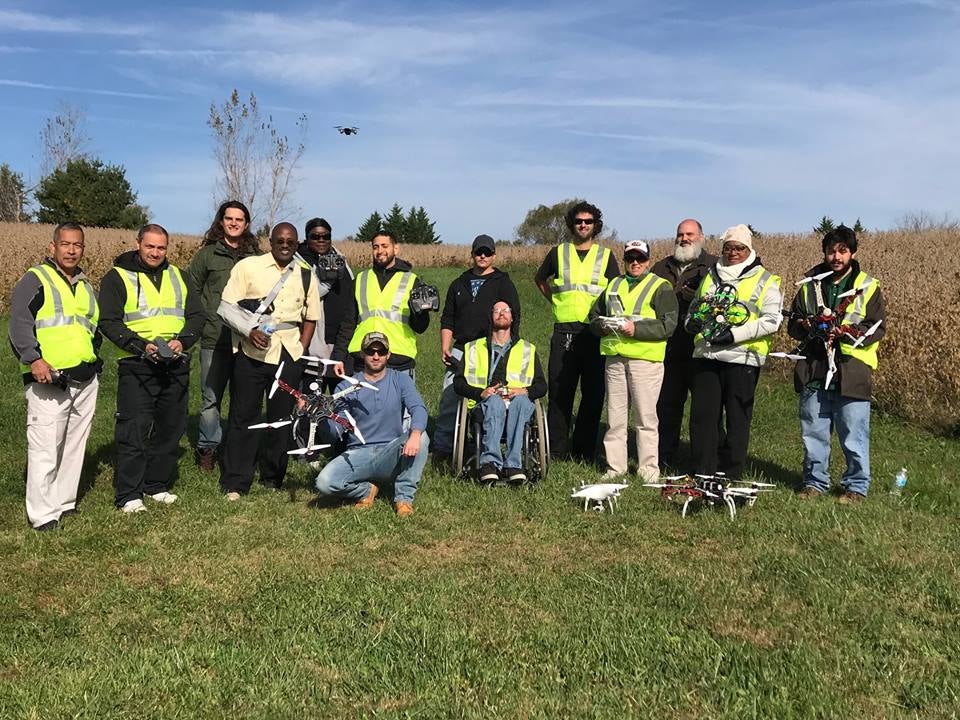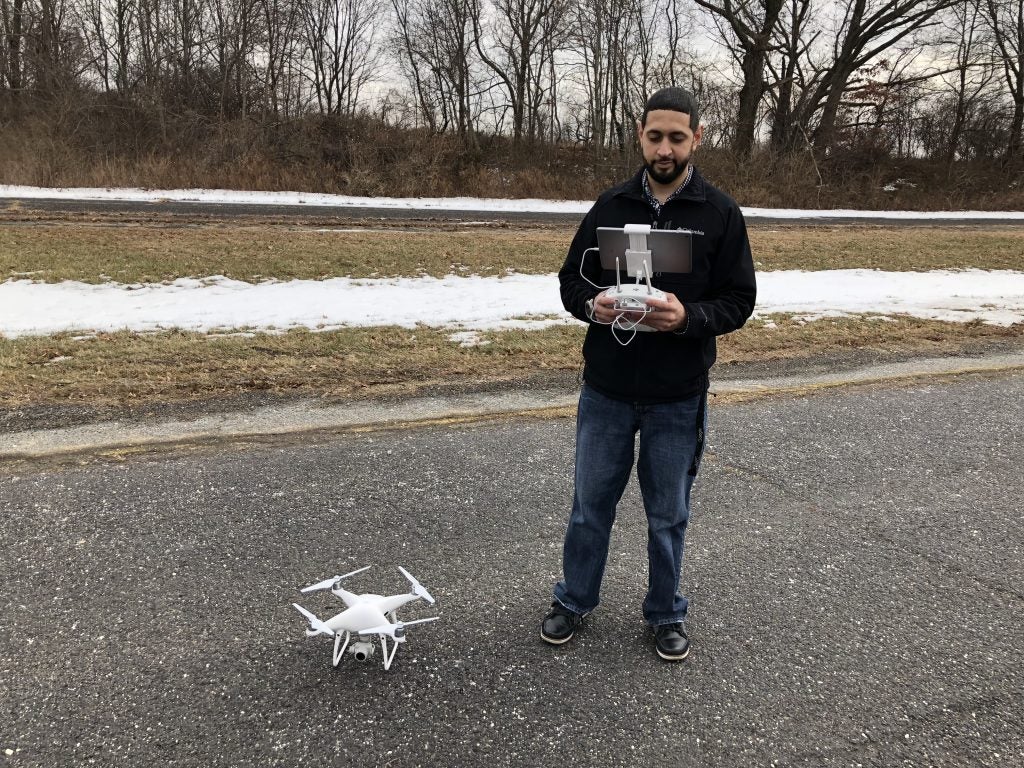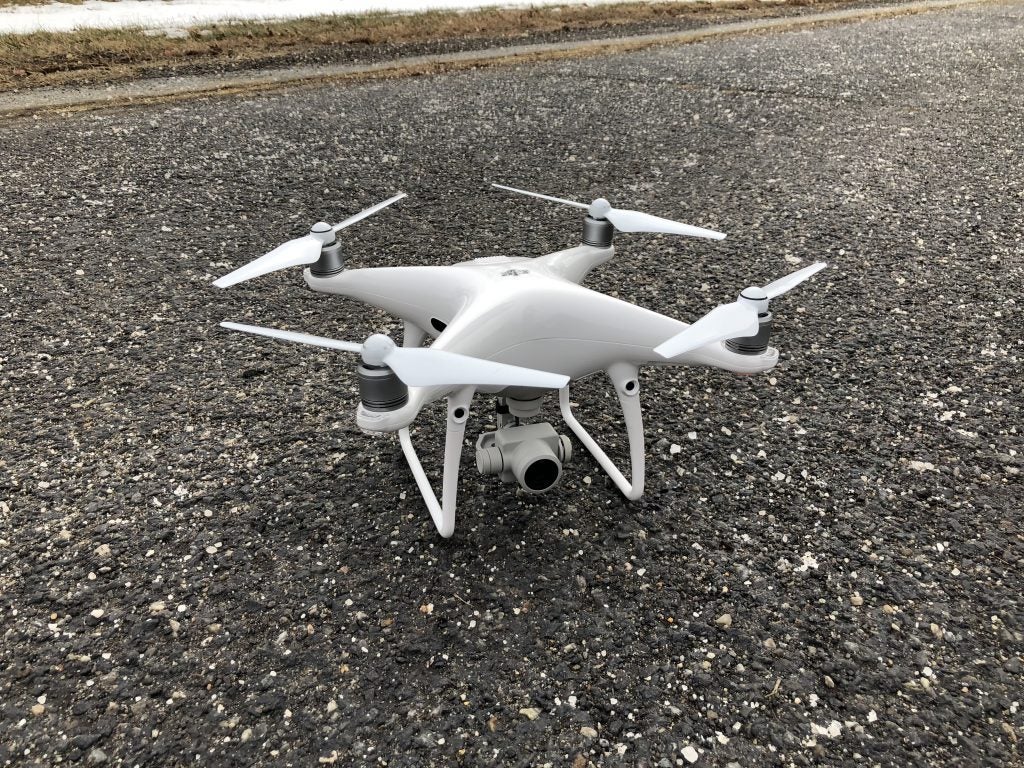Drone school takes off in Delaware
As technology advances, new ways to use drones are being discovered and that could mean big money for FAA-certified commercial drone pilots.
Listen 4:49For a long time, drones were primarily used for military purposes. However, as the technology advances, new applications are being discovered for the unmanned aircraft and that could mean big money for FAA-certified commercial drone pilots.
With all of this money-making potential, drone schools are popping up across the country. The majority of the classes are offered online, but Theophilus Nix and his wife, Suzanne, felt that a more comprehensive program was needed. They co-founded Drone Workforce Solutions (DWS).
The school was opened with a $59,000 Delaware Dept. of Labor grant. The grant is awarded to organizations that focus on workforce development. The money covered tuition, normally $6,000 per student, for 12 students in DWS’ inaugural class.
Taught inside the New Castle County Chamber of Commerce space on the Wilmington Riverfront, students took part in a 10-week, 70-hour curriculum that combined classroom work with hands-on flying time.

“We train people who are interested in getting into drone technology by teaching them how to fly drones, how to pass the Federal Aviation Administration exam, how to edit the data that they get and how to build a drone,” Nix explained.
While there are other drone schools in Delaware, and plenty of online courses to choose from, Nix said what separates DWS from other drone training programs is that it’s also an employment/referral agency.
“We hire drone operators from around the country who populate our site with the information. We validate the information that they’re FAA certified, that they have their licenses, what kinds of drones they fly, where are they in the country,” said Nix, who wants to develop the premier database for all 66,000 FAA-certified drone pilots across the country.
Then when jobs come in from employers, he can act as a middleman matching drone pilots to specific jobs depending on what’s required.
DWS graduated its first class in December. Graduate Gabriel Cruz jumped at the chance to learn how to fly drones.

“I saw an opportunity, I didn’t hesitate. I was like, look, it’s a new industry that’s pretty much untouched territory in Delaware, so I was like ‘hey, why not,'” said Cruz, who passed his FAA certification exam and is ready to work.
FAA certification is required if you want to make money piloting a drone. Hobbyists are not required to be certified, but are still expected to follow some universal flying rules, like no flying over people or over cars.
“This is definitely career-worthy. Anybody could make a full-time career out of this,” Cruz said. “The sky’s the limit. So I can do anything from inspections, I can do agricultural … I can do the typical cinematography, as well, where I can fly in the sky, do some editing. Editing is going to be a really big skill to have when it comes to aerial drone videography.”
Investment bank Goldman Sachs forecasts drones to grow to a $100 billion industry by 2020, worldwide. Demand from the military is projected to account for $70 billion; consumers are expected to spend a total of $17 billion buying drones; businesses and local governments will account for the remaining $13 billion.
Nix hopes by training a generation of FAA commercial drone pilots, he can take a bite out of that $13 billion piece of pie. He’s targeting utility companies that can use a drone to inspect a utility pole instead of an employee, as well as realtors and farmers.
“We can do what’s called precision intervention and really pinpoint for farmers where their issue is in the field. Instead of spraying the whole thousand acres, we can show a farmer where the issue is in his field and then they can spray just that area saving them millions of dollars over a period of time,” Nix said.
Ray Buchta is not affiliated with DWS, but has been flying drones for a few years now. He works at Delaware Digital Video Factory in North Wilmington. Buchta, who was FAA certified last year, said being able to get aerial shots adds a lot to his video production work.

“It’s an emerging market and it’s definitely a lot of potential out there,” Buchta said. “It’s definitely fun to watch and fun to be involved in because there’s a lot of stuff coming on the horizon. And then you also have Amazon and all these places, UPS, that want to start delivering with drones, and that’s a whole other industry in itself. Ten to 20 years from now, we may have drones flying all over the place.”
WHYY is your source for fact-based, in-depth journalism and information. As a nonprofit organization, we rely on financial support from readers like you. Please give today.





